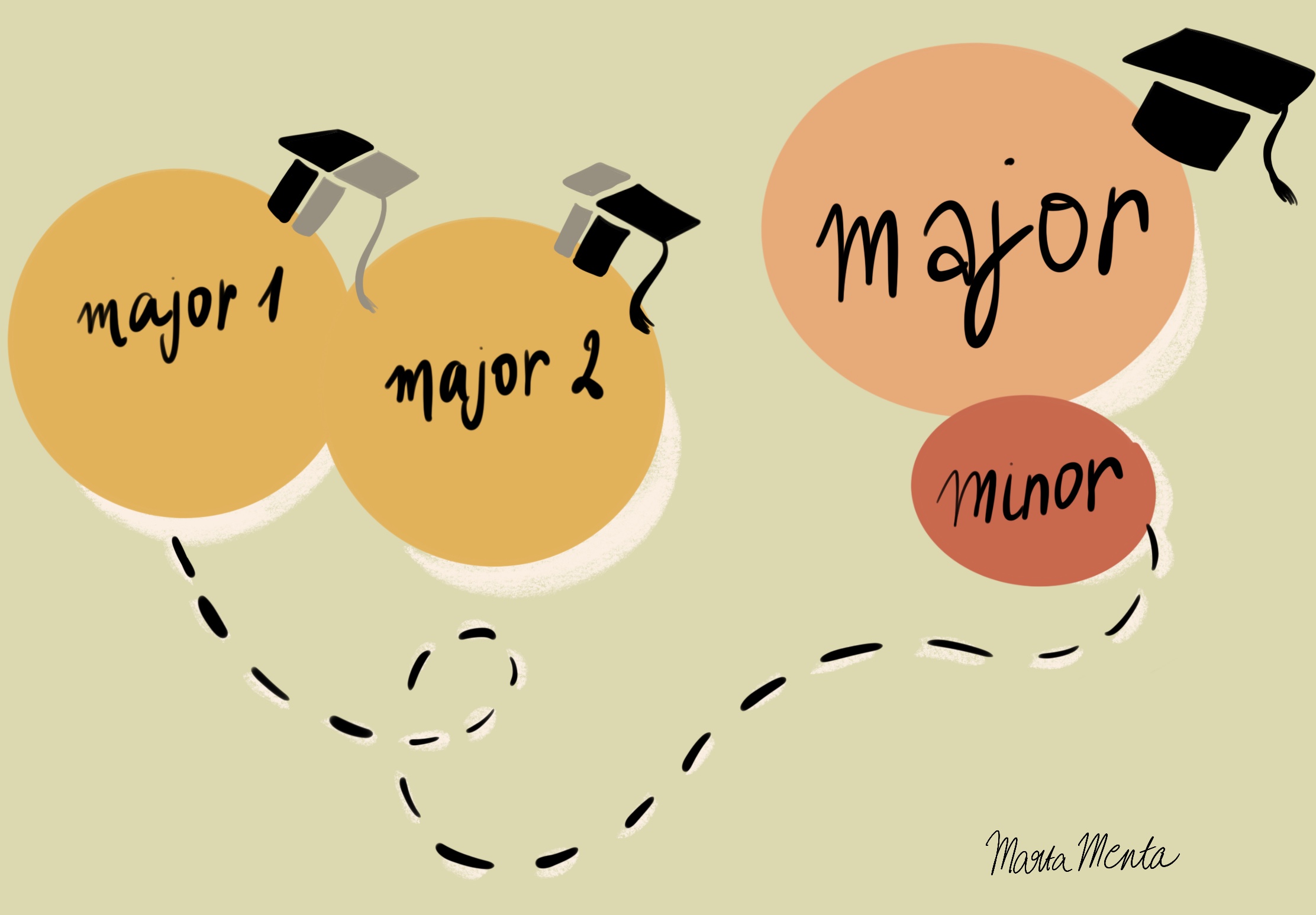Studying anything at college level comes with its own unique benefits and drawbacks, with all subjects requiring a high level of drive and commitment, and a rigorous reading schedule. However, liberal arts students tend to suffer the most with the undervaluing of their degree – there can be a lot of condescension towards arts and humanities students, underpinning the neoliberal notion that a stable career in STEM is the definition of a successful life. Furthermore, the current economy means that there is a scramble for jobs requiring a bachelor of arts degree and it seems that these fields will only shrink further by the time the current class are graduates.
Choosing an arts degree at this time can feel futile, and this shows in the Central Application Office’s (CAO) 2020 statistics, with noticeable drops in total mentions of preferences for arts, humanities, languages, and journalism and information (down 5%, 1%, 11% and 14% respectively from 2019). Trinity’s reform of the Two Subject Moderatorship (TSM) arts pathways will be the first step in the right direction for a more flexible and hands-on approach to an arts education.
“Trinity’s reform of the Two Subject Moderatorship (TSM) arts pathways will be the first step in the right direction for a more flexible and hands-on approach to an arts education.”
We are lucky in Trinity to have among the best arts offerings in Ireland, with many of the arts and humanities departments being in the global top 50. However, the previous TSM curriculum meant that a student would have to select their two subjects and study them in equal amounts for the first three years of their degree, with the option to drop one of the subjects in final year. Although this provides a very specialised four years of education, there is little wiggle room for a student to truly explore other subjects and find what they are passionate about. The decision to just study one or two subjects at the age of 18 is one that limits young people and deprives them of a broader education, instilling anxiety about the future during an already very uncertain time.
“The decision to just study one or two subjects at the age of 18 is one that limits young people and deprives them of a broader education, instilling anxiety about the future during an already very uncertain time.”
Other colleges in Ireland, like University College Dublin, Maynooth University, and NUI Galway, all have very broad and flexible arts programmes, allowing students to take at least two or three subjects in first year, with the ability to select elective subjects from other disciplines that may interest them. The American university system is similar to this, in that students are allowed to pick and choose whatever subjects they are interested in, and declare their major and minor subjects as late as their third year. Trinity’s new Trinity Joint Honour (TJH) courses are gearing up towards following in a similar direction. Whilst students must still declare their two subjects at the beginning of their education, it is now possible to approach your degree in many different ways. Students now have the ability to choose their major and minor as early as second year, and the ability to change it again, or even drop one subject completely in any year of study.
This new reform comes hand in hand with the Trinity Electives, modules that most students are allowed to take as part of their degree. These electives cover languages, sciences, arts, and offer more modern courses on the digital age and cutting edge technologies, in contrast with many of the very traditional modules offered within the arts. The possibility of broadening your horizons with these electives is a feature that could draw many new students to Trinity who may have found that the older TSM course was too limiting.
Coming as part and parcel of Trinity’s high placement on the Times Higher Education University Rankings, as well as the prestigious name associated with the college, the demand for certain courses tends to be higher than most other arts courses in Ireland. As a result, the points tend to be disproportionately high in Trinity for arts degrees compared with anywhere else. With the TJH reform, TJH students are admitted to the CAO on the basis of their combination of subjects, as opposed to the previous system where the student needed to earn at minimum, the Leaving Certificate points of their highest-point subject choice.
The new reform also offers single honour students the ability to choose a new minor subject in their second year, which is a great opportunity for students who may not have received the points for a more in-demand and thus higher point course to have access to a degree that they would otherwise be unable to pursue. This could level the playing field for higher demand courses, easing the points push for Trinity arts degrees and dispelling some of Trinity’s notorious elitism within the arts.
“The new pathway options can open the doors for current students to explore many more avenues of their degrees.”
The new pathway options can open the doors for current students to explore many more avenues of their degrees, weighting their studies on their preferred subject, and taking electives in something completely different. But for new students, the effects that the TJH will have on the CAO could be a small push in the right direction in the negating of the disproportionate statistics in relation to admissions to Trinity, and certainly a welcome one.






